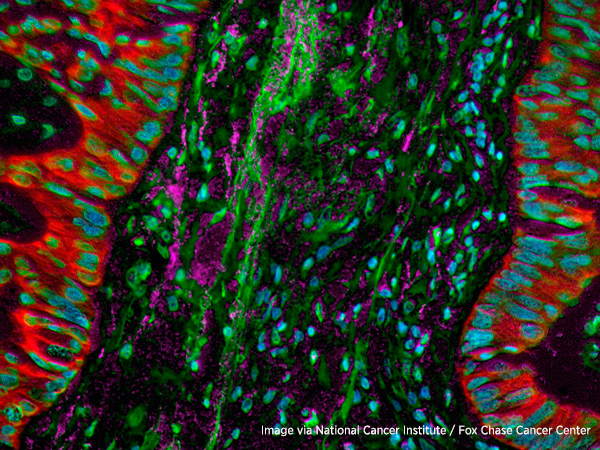Targeting Non-Small Cell Lung Cancer
The FDA approved a new molecularly targeted therapeutic for certain patients with lung cancer driven by a mutation in the mesenchymal-epithelial transition (MET) gene.

The U.S. Food and Drug Administration (FDA) has approved capmatinib (Tabrecta) to treat certain patients with the most common form of lung cancer – non-small cell lung cancer.
The clinical trial data used by the FDA as the basis for the approval of the new molecularly targeted therapeutic was presented at the American Association for Cancer Research Virtual Annual Meeting I in April 2020, just days before the agency rendered its decision.
Lung cancer is the leading cause of cancer death in the United States and worldwide, despite research-driven progress against the disease. In 2020, nearly 229,000 people in the U.S. are expected to be diagnosed with cancers of the lung and bronchus, and some 135,720 are expected to die of these cancers.
Non-small cell lung cancers account for more than 80 percent of all lung cancers. Smoking is the most common risk factor for lung cancer. Other risk factors including exposure to secondhand smoke, a family history of the disease, exposure to radon, and workplace exposure to certain carcinogens, including asbestos.
The approval of capmatinib was based on the results of the GEOMETRY mono-1 phase II clinical trial, which was designed to evaluate capmatinib as a monotherapy for patients with stage IIIB or stage IV non-small cell lung cancer that harbors mesenchymal-epithelial transition (MET) gene alterations.
Capmatinib targets tumors with a mutation in the MET gene that results in skipping of exon 14. This mutation is found in between 3 percent and 4 percent of non-small cell lung cancers, said Edward B. Garon, MD, of the David Geffen School of Medicine at UCLA, during his presentation at the AACR virtual meeting.
Additional details on the FDA approval and on the data presented at the AACR Virtual Annual Meeting I are available on the AACR’s official blog, Cancer Research Catalyst.
The FDA approval was rendered on April 28, 2020.
